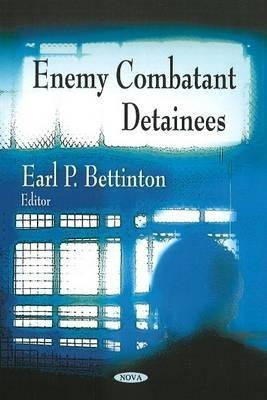Enemy Combatant Detainees(English, Paperback, unknown)
Quick Overview
Product Price Comparison
After the U.S. Supreme Court held that U.S. courts have jurisdiction pursuant to 28 U.S.C. 2241 to hear legal challenges on behalf of persons detained at the U.S. Naval Station in Guantanamo Bay, Cuba, in connection with the war against terrorism (Rasul v. Bush), the Pentagon established administrative hearings, called "Combatant Status Review Tribunals" (CSRTs), to allow the detainees to contest their status as enemy combatants, and informed them of their right to pursue relief in federal court by seeking a writ of habeas corpus. Lawyers subsequently filed dozens of petitions on behalf of the detainees in the District Court for the District of Columbia, where district court judges reached inconsistent conclusions as to whether the detainees have any enforceable rights to challenge their treatment and detention. In December 2005, Congress passed the Detainee Treatment Act of 2005 (DTA) to divest the courts of jurisdiction to hear some detainees' challenges by eliminating the federal courts' statutory jurisdiction over habeas claims by aliens detained at Guantanamo Bay (as well as other causes of action based on their treatment or living conditions). The DTA provides instead for limited appeals of CSRT determinations or final decisions of military commissions. After the Supreme Court rejected the view that the DTA left it without jurisdiction to review a habeas challenge to the validity of military commissions in the case of Hamdan v. Rumsfeld, the 109th Congress enacted the Military Commissions Act of 2006 (MCA) (P.L. 109-366) to authorize the President to convene military commissions and to amend the DTA to further reduce access to federal courts by "alien enemy combatants," wherever held, by eliminating pending and future causes of action other than the limited review of military proceedings permitted under the DTA. In June 2008, the Supreme Court held in the case of Boumediene v. Bush that aliens designated as enemy combatants and detained at Guantanamo Bay have the constitutional privilege of habeas corpus. The Court also found that MCA 7, which limited judicial review of executive determinations of the petitioners' enemy combatant status, did not provide an adequate habeas substitute and therefore acted as an unconstitutional suspension of the writ of habeas. The immediate impact of the Boumediene decision is that detainees at Guantanamo may petition a federal district court for habeas review of the legality and possibly the circumstances of their detention, perhaps including challenges to the jurisdiction of military commissions.


